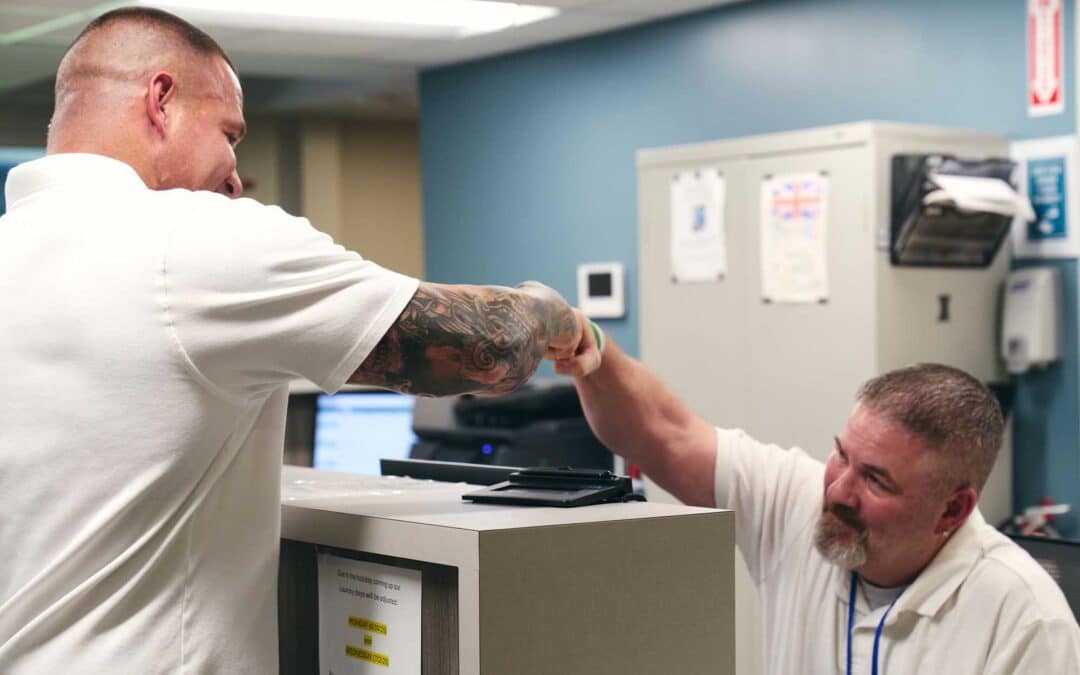When someone thinks about quitting drugs or alcohol, they feel fearful of the detox process. While it is true that withdrawal can be difficult and uncomfortable, it can be lifesaving and profoundly healing experience. Studies show that people who participate in an alcohol or drug detox program are more likely to achieve lasting recovery successfully, so seeking treatment is a wise choice for most. If you or a loved one has been struggling with alcohol, you may have many questions about detox. Learning about the process can be helpful and empowering, especially for someone just beginning their recovery journey.
What is Detox? How Long Does It Take to Detox From Alcohol?
When someone drinks alcohol over a long period of time, the body starts to get used to the presence of alcohol. The body’s systems and processes are changed to keep things working even while the alcohol is present. This explains why people addicted to alcohol can often function somewhat normally, even when very intoxicated. However, when a person stops drinking, the body’s systems and processes stay in their altered state. This is why withdrawal symptoms happen – the body responds to something that is no longer there.
Generally speaking, acute withdrawal symptoms begin around 6 hours after the person’s last drink and can continue for 3-4 days. Several factors can influence how intense someone’s withdrawal symptoms are and exactly how long it will take them to detox from alcohol. Some of these factors are:
- How long the person has been drinking
- The amount the person drinks each day
- Whether or not drugs are also being used
- The person’s overall state of health
While each individual will have a unique withdrawal experience and intensity level, there are shared experiences and, thus, common approaches to healing.
What Alcohol Detox Symptoms Can I Expect?
Everyone’s experience with detoxing from alcohol is different because, as mentioned above, everyone’s situation is different. However, some commonly-experienced symptoms range from mild to severe. Not everyone will experience these symptoms while going through detox, but most people will experience some of them. Some of the most common symptoms of alcohol detox are:
- Tremors or shaky hands
- Nausea and vomiting
- Headache
- Trouble sleeping
- Sweating
- Racing heart and high blood pressure
- Fever
A very small number of people may experience hallucinations or seizures when stopping alcohol. This condition, while rare, can be life-threatening. This is why it is always better to seek professional treatment when attempting to stop drinking.
What Is Medical Detox? How Does Detox Work in Rehab?
Medical detox is a process by which the client is monitored by medical and therapeutic staff during the detox process. Often, this is done in an inpatient setting so that clients can be offered medicines and treatments that will help them stay safe and as comfortable as possible. Especially in the case of alcohol detox, this can be the best choice since there is some medical risk involved.
Usually, medical detox is the first step in a longer, comprehensive alcohol treatment program. Once the client’s body has eliminated the alcohol and rebalanced its functions, the client will benefit from therapy and counseling to help them achieve lasting recovery.
Liberty Health Services in Derry, New Hampshire Can Help
If you or a loved one have been struggling with alcohol and are ready to take that first crucial step towards healing, reach out to our caring and compassionate staff today at 855.959.4521. As a premier alcohol and substance abuse treatment center in the region, we are committed to helping our clients, and their families heal from addiction and successfully navigate the recovery journey. We’re committed to supporting individuals as they work to heal from the disease of addiction and make a lasting recovery.


